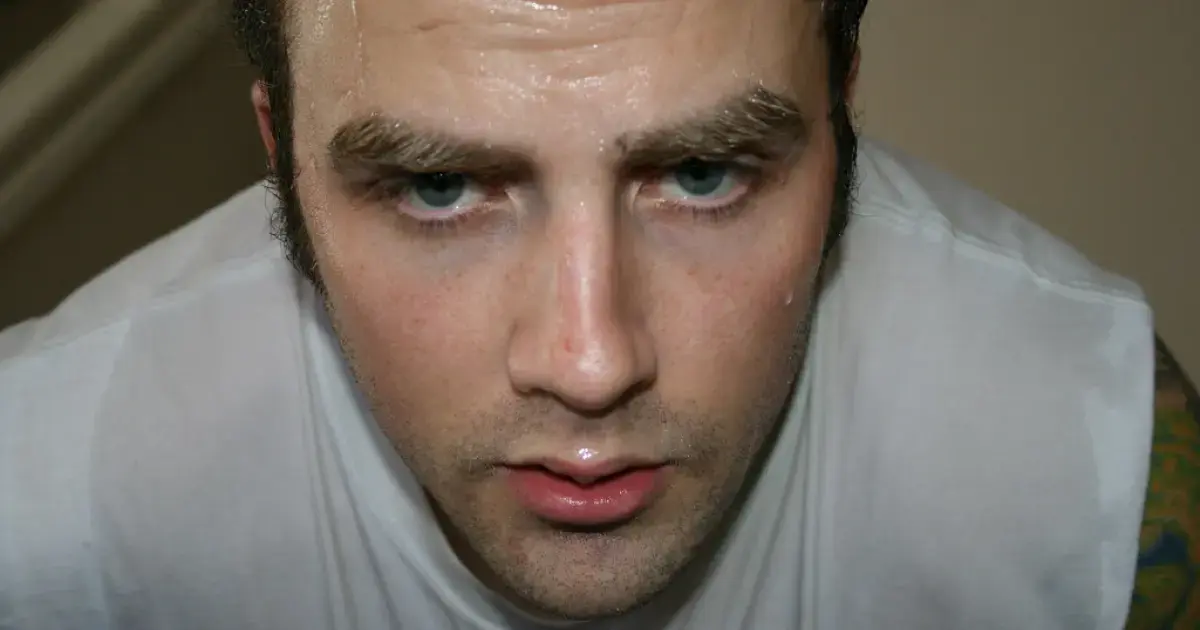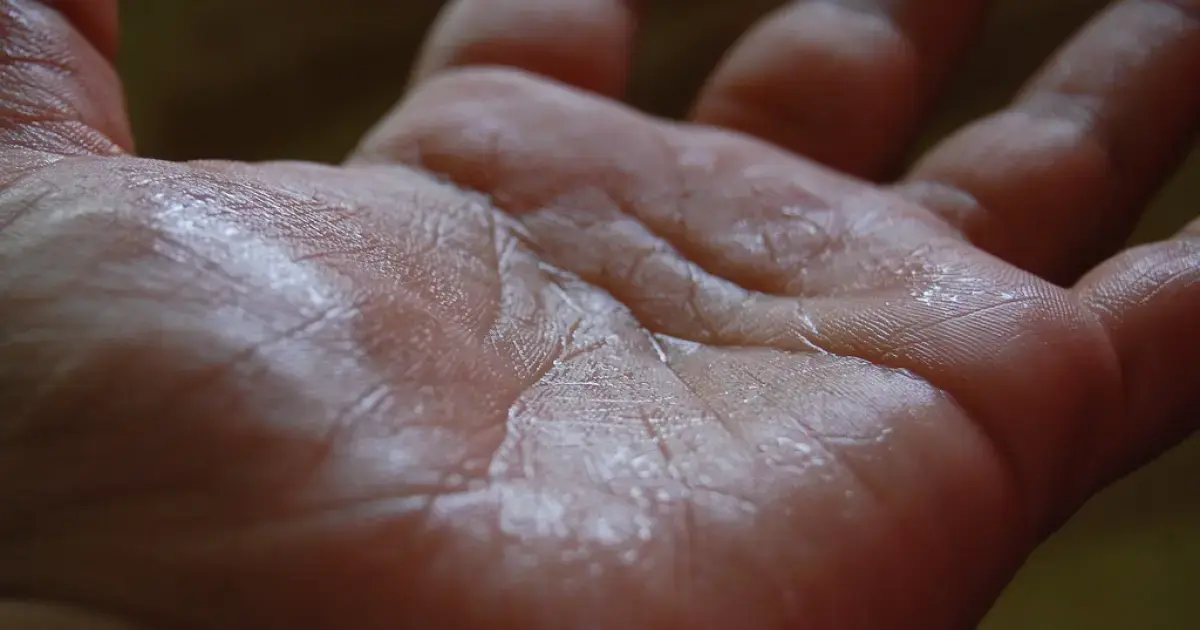 Excessive sweating (medically known as hyperhidrosis) can sometimes be more than just a hygiene issue; it may indicate an unhealthy lifestyle or underlying health problems. Medical professionals note that 17% of people experience this issue, primarily sedentary urban dwellers rather than physically active rural residents who have a more natural daily routine and lifestyle. To tackle excessive and uncomfortable sweating, it’s essential to identify its causes. What bodily issues might it signal?
Excessive sweating (medically known as hyperhidrosis) can sometimes be more than just a hygiene issue; it may indicate an unhealthy lifestyle or underlying health problems. Medical professionals note that 17% of people experience this issue, primarily sedentary urban dwellers rather than physically active rural residents who have a more natural daily routine and lifestyle. To tackle excessive and uncomfortable sweating, it’s essential to identify its causes. What bodily issues might it signal?
What is Sweat?
Sweating is a natural function of our bodies, normal during physical activity or hot weather. The purpose of producing and excreting a clear fluid through the ducts of the eccrine sweat glands, which is mostly water (99%) and salt (1%), is to cool the body down. While sweat does carry some proteins, fats, and organic compounds (like lactic acid, creatinine, and urea), detoxification is not its primary role; that task falls to the kidneys and liver.
Excessive sweating can be generalized or localized, meaning it can occur all over the skin or in specific areas. Localized excessive sweating often indicates a medical condition or problem within the body. Unlike the physiological response to heat, exertion, or stress, excessive sweating can be a symptom of primary hyperhidrosis, a characteristic of the nervous system, or secondary hyperhidrosis, triggered by diseases.

Possible Causes of Sweating
Non-medical factors that can contribute to sweating include:
- uncomfortable sleeping conditions (poor ventilation in the bedroom, excessively high temperatures, overly warm blankets or bedding, synthetic materials in linens);
- intense physical activity before bedtime;
- consumption of alcohol, caffeine, or spicy foods in the evening.
Generalized or localized excessive sweating can also be influenced by the following circumstances and conditions:
- medication use (such as antidepressants);
- age-related physiological changes;
- hormonal imbalances;
- thyroid disorders;
- cardiovascular diseases;
- neurological disorders;
- diabetes;
- infections;
- pneumonia;
- tuberculosis;
- cancer (such as lymphoma).
Intense night sweats can be caused by fever or a heart attack. Nighttime sweating is not only associated with illnesses; for instance, women may experience it during pregnancy or menopause. Moreover, excessive night sweating in women can sometimes serve as a warning sign of heart health issues. A sweat-soaked bed can indicate a heart attack, especially if accompanied by other symptoms:
- extreme fatigue;
- shortness of breath or irregular breathing;
- dizziness;
- intense anxiety or panic;
- nausea and stomach upset.
To determine the exact cause of sweating, medical diagnostics are necessary.
Endocrine System Issues
Women often struggle with sweating during menopause, which manifests as sudden feelings of heat that can be quite bothersome in daily interactions and disrupt work. Hot flashes and intense night sweats result from thermoregulation disturbances due to decreased estrogen levels in the body. To alleviate sweating symptoms, doctors recommend that women sleep in a cool room, wear only natural fabrics, avoid triggers (stress, hot foods), and in severe cases, consider hormone therapy.
If hormonal imbalances are the cause of excessive sweating, an endocrinologist should conduct the examination and treatment. Endocrine diseases, hormonal disorders, and rickets can lead to sweating in children. However, the symptoms will not differ from excessive sweating due to a cold, physical exertion, emotions, or heat. If a child experiences excessive sweating accompanied by fever and poor sleep, it’s essential to consult a pediatrician for treatment.

Cardiovascular Diseases
Increased overall sweating may indicate potential vascular issues. Night sweating can be a sign of possible heart problems. Ignoring such a symptom is particularly dangerous when the sweat is sticky and cold; in this case, one should see a cardiologist without delay. During a heart attack, increased sweating occurs as the heart works harder to pump blood through cholesterol-blocked arteries. Sweating associated with atherosclerosis indicates a high risk of heart attack.
Excessive sweating due to narrowed arteries from the formation of plaques (accumulations of fat deposits) often suggests that a person has heart problems. If you engage in sports or physical labor (especially in the morning or during hot weather) and notice more intense sweating than usual, this is also a cause for concern, as it indicates that the heart is struggling to maintain body temperature balance and is under excessive strain.
Diabetes
Another serious disease, according to the World Health Organization, claims 1.5 million lives each year: the pancreas does not produce enough insulin (the hormone that regulates blood glucose levels), or the insulin produced cannot be effectively utilized by the body. In diabetes, excessive sweating primarily occurs in the armpits and/or palms. Sweating in the hands (palms and armpits) or feet can be caused by diabetes and other systemic diseases.
Similar symptoms can occur with cardiovascular issues and thyroid diseases. They can also be linked to improper footwear and clothing, infections, hormonal changes, stress, and genetics. If excessive sweating interferes with normal life (and it can cause significant discomfort), it’s advisable to first consult a dermatologist to determine the cause of sweating and find appropriate medical or other treatments.

Illnesses or Physiological Changes?
If palms are sweating profusely, accompanied by elevated temperature, difficulty breathing, rapid fatigue, and weakness, along with a persistent cough, these symptoms may resemble pneumonia or even tuberculosis. Both diseases are primarily characterized by night sweats. For peace of mind, it’s wise to visit a doctor—especially if the problem appeared suddenly. The sooner the true cause of your new condition is diagnosed, the better your chances for a full and healthy life.
Fortunately, not all causes of excessive sweating are related to illnesses. This issue is often triggered by physiological changes: intense sweating can occur during adolescence, in the last months of pregnancy, and in older adults. Additionally, sweating may have no identifiable cause; it could simply be a characteristic of the individual’s body. In such cases, individuals suffer from a damp body throughout their lives, starting from adolescence, and must pay close attention to personal hygiene.
How to Combat Sweating?
For excessive sweating, doctors recommend limiting fluid intake during hot weather, but not completely avoiding replenishing lost moisture. It’s important to drink enough still water or beverages with lemon and honey, herbal infusions with mint, lemon balm, blueberry leaves, nettle, or sage, as well as pea and bean pods. Showering twice a day, removing underarm hair, using antiperspirants, wearing natural fabrics, avoiding stress, and maintaining a healthy diet are also essential.
Additionally, treatment options are available. Doctors may prescribe injections of Botox in problem areas to suppress normal sweat gland activity (though this solution is temporary, lasting only about six months, and is not inexpensive). Another option is iontophoresis (electrophoresis), but the effects of this treatment last even less—about two months. A radical method involves surgically disabling the sweat glands permanently.
Photo: Openverse
